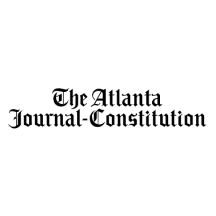Recent events, including a military parade and a meeting of the Shanghai Cooperation Organization in Beijing, highlight a significant shift in global power dynamics. The influence of Western alliances appears to be waning, while authoritarian regimes, particularly China, Russia, and North Korea, are gaining traction. Yaroslav Trofimov of the Wall Street Journal noted that the image of Chinese President Xi Jinping alongside leaders of nuclear powers Russia and North Korea, as intercontinental ballistic missiles paraded through Tiananmen Square, signifies a new phase in the international order.
The current U.S. leadership under President Trump is characterized by impulsive and often contradictory actions, which contrasts sharply with the growing solidarity among China, Russia, and North Korea. Countries that were once considered U.S. allies, such as India, Brazil, Vietnam, and South Africa, are increasingly drawn to China's stability and less confrontational approach. Fareed Zakaria remarked on CNN that this trend represents "the greatest own goal in modern U.S. foreign policy."
Many NATO allies are feeling the impact of Trump's tariffs, which have strained relationships. In an effort to maintain economic partnerships, these nations have often accommodated U.S. demands, leading to a sense of humiliation among European leaders. The rise of populist sentiments in Europe mirrors Trump's "America First" policy. In the UK, Nigel Farage's Reform UK party is leading in polls, appealing to voters frustrated with the current government and mainstream narratives on issues like immigration and multiculturalism.
In France, political instability continues as the government faces its fourth prime minister in a year, benefiting Marine Le Pen's National Rally party. Gerard Baker from the Wall Street Journal highlighted that Le Pen's successor, Jordan Bardella, is working to reshape the party's image, distancing it from its past associations with antisemitism.
Germany's Chancellor Friedrich Merz is grappling with public discontent while facing challenges from the far-right Alternative for Germany party. European leaders have opted for appeasement rather than confrontation over tariffs, despite their economic power. This strategy has led to growing public frustration, prompting calls for a stronger political union in Europe and a more independent defense strategy that does not rely solely on the U.S.
As the conflict between Russia and Ukraine continues, European leaders are attempting to fill the void left by U.S. policy. However, their efforts have not yet resulted in a unified response. Trump has urged NATO members to impose secondary sanctions on countries purchasing Russian oil and gas, but his inconsistent approach has raised concerns about U.S. commitment to the region.
The situation in Ukraine remains dire, with ongoing missile and drone attacks. The U.S. Senate has expressed support for stronger sanctions against Russia, but action has been slow. The U.S. has imposed secondary tariffs on India, a long-time ally, while sparing China, which poses a greater risk of retaliation.
Recent drone attacks by Russia on Poland have tested NATO's unity, with Polish Prime Minister Donald Tusk firmly stating that these actions were intentional. Trump's dismissive response has raised questions about U.S. leadership in the region.
Domestically, the Democratic Party faces internal divisions, and the assassination of conservative activist Charlie Kirk has further strained political discourse. The unpredictable nature of U.S. foreign policy is souring relations with potential allies and increasing vulnerability to adversaries.
For Canada, the outlook for improved relations with the U.S. remains uncertain. There is a pressing need for a shift in focus towards policies that prioritize national interests and foster productive relationships with countries like China and India.

 Canada News
Canada News

 AlterNet
AlterNet CTV News
CTV News  The Atlanta Journal-Constitution Sports
The Atlanta Journal-Constitution Sports The Babylon Bee
The Babylon Bee People Top Story
People Top Story